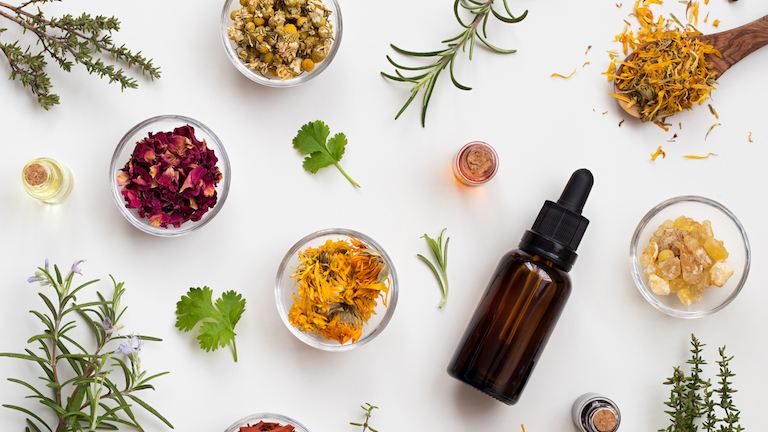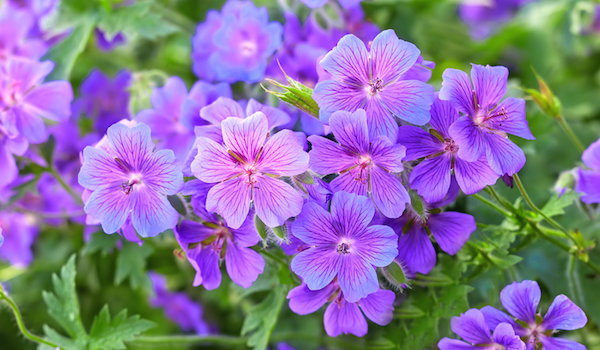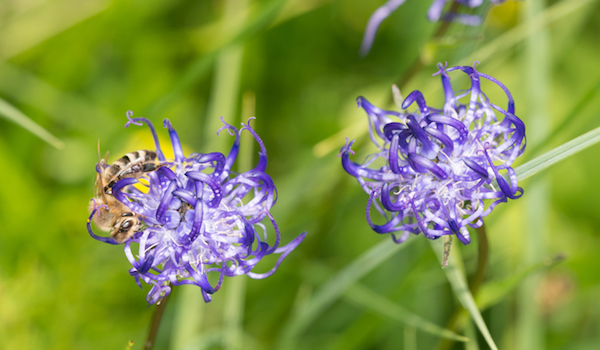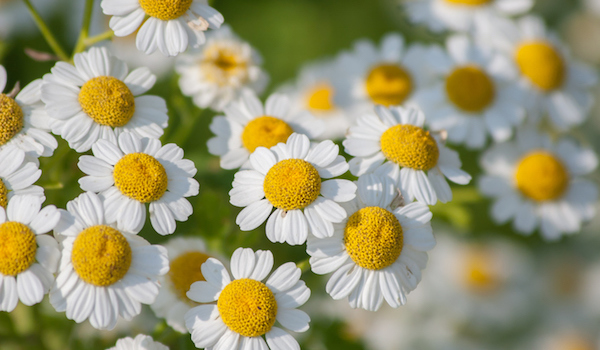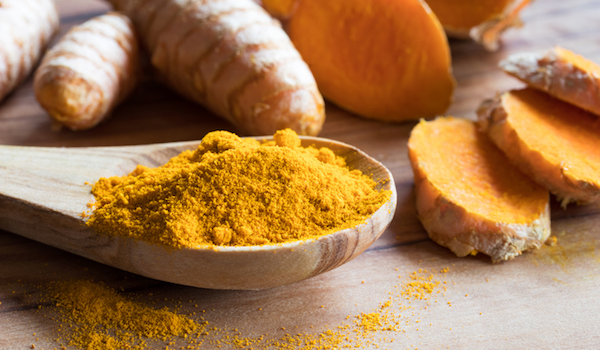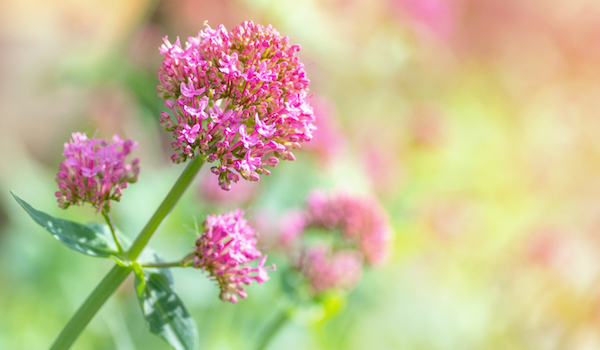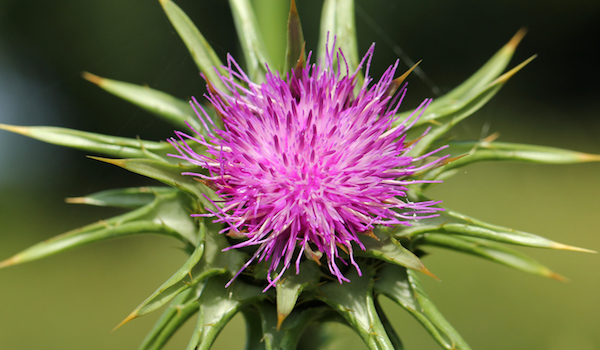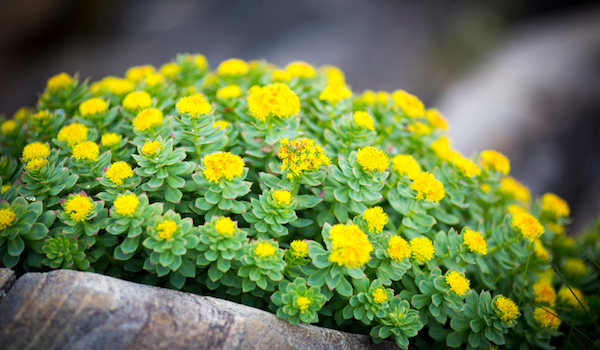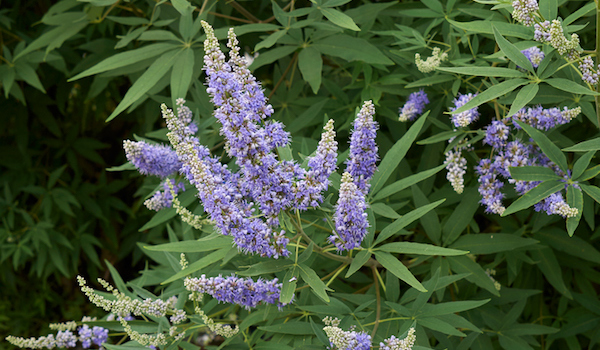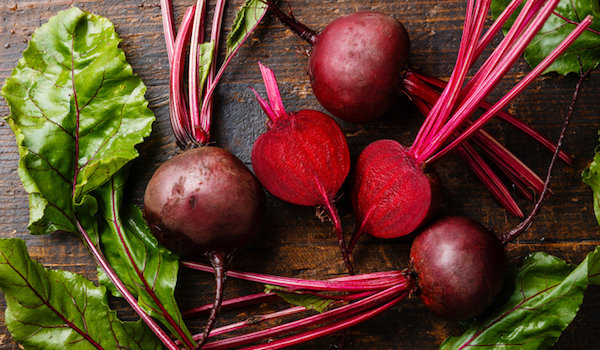From sleep problems to coughs and colds, no one likes popping medication unless they have to and now even doctors are urging us to opt for natural remedies first
Whether it’s a cough or cold, hangover or sleep issue, it’s all too tempting to pop analgesics or head to your doctor demanding medication to just feel normal again.
But while the natural world hasn’t quite got to curing serious illnesses hat need prescribed medication and treatment,, such as cancers and heart disease, problems such as insomnia or a cold-related cough – well, nature has often got it covered and often with the science to prove it.
In fact, just recently new draft guidelines prepared by Public Health England (PHE) and the National Institute of Clinical Excellence (NICE) urged doctors to educate their patients about alternatives to antibiotics and over-the-counter medications when it came to coughs and colds.
Public Health England have urged doctors to educate patients about alternatives to antibiotics
According to the NICE draft guidance, honey and cough medicines containing natural substances such as pelargonium (see below) have been proven to help cough symptoms settle.
Opting for such natural solutions instead of antibiotics as a first line of defence could not only help symptoms, it could potentially help halt the growing public health problem of antibiotic resistance in which more and more infections become resistant to antibiotic treatments because of their overuse, the experts said.
It prompted Healthista to talk to the experts and find out exactly what proven natural solutions we can opt for when the everyday health problems arise.
COUGHS AND COLDS
Natural solution: pelargonium
If you stumble to work when you’re coughing and sniffling, spare a thought for those who can’t manage it, even if they ‘only’ have a cold.
Indeed, a staggering 27 million work days are lost to colds and flu annually in the UK.
Young children get some eight to ten colds a year and often, what can start as a cold can quickly turn into a serious secondary infection, which then needs treatment with antibiotics and potential knock-on effects of medicine resistance and digestive problems which often come from repeated antibiotic prescriptions.
New research using a double-blind, randomised, placebo-controlled study of 125 children aged six to ten years, suffering from acute tonsillitis has found that liquid Pelargonium reduced the duration and severity of their symptoms.
In fact, eight out of ten children treated with the extract were symptom-free by day six compared to only a quarter of those taking placebo.
This builds on a growing body of research that shows in adults, taking Pelargonium at the first sign of a sore throat can reduce the length of the cold thanks to the natural antibiotic effects of the natural extract.
‘The children’s study provides further confirmation of the effectiveness of the herb Pelargonium,’ says Mike Wakeman, a clinical pharmacist with a special interest in natural medicine.
‘It’s estimated with fewer than one in five people presenting with a sore throat will benefit from taking antibiotics and taking Pelargonium provides an effective alternative treatment’.
Try Kaloba Pelargonium Cough and Cold Relief as oral drops or sugar-free syrup (suitable from six years or tablets (from 12 years). This contains Pelargonium sidoides EPs® 7630, the particular extract on which most of the research has been done.
BACK PAIN
Natural solution: devil’s claw (and physio)
It’s painful to imagine that 18 million people in the UK are affected each day by lower back pain and if you’re one of them, you know the devastating toll it can take on your life.
In fact, back pain costs the NHS, business and the economy some £5 billion each year.
But before you reach for another analgesic, here’s some heartening news. Research published in May this year found that those who saw a back specialist – that is, a physiotherapist – first were 89 per cent less likely to end up with a prescription for strong, potentially addictive painkillers such as codeine, morphine or tramadol.
The research, published in the journal Health Services Research found that the same patients were 38 per cent less likely to end up needing an MRI or CT scan.
When it comes to proven natural remedies for lower back pain, perhaps the most well-researched is Devil’s Claw, a perennial shrub that grows wild in the desert countries of Southern Africa, most notably in the Kalahari sands of Namibia.
As an herbal extract, Devil’s Claw is used traditionally to relieve general aches and pains including back pain.
In 2014, a prestigious Cochrane Review of published studies found 10 randomised, controlled trials on Devil’s Claw for back pain showed significant benefit in taking a daily dose.
In addition, a review of 28 clinical trials published in the journal Phytother Research found that everyday use of Devil’s Claw for back pain was not only effective but also that 60 per cent of patients tested stopped or reduced their dosage of painkillers.
Try FlexiHerb Muscle and Joint Pain Relief 40s £10.20 which contains 600mg of Devil’s Claw and take one or two tablets twice to relieve pain.
MIGRAINE
Natural solution: feverfew
Some 11.3 million UK adults say they have experienced a migraine headache at some time, with almost 50 per cent blaming stress as the trigger and almost a third not knowing why they suddenly get an attack.
The first line of defence against migraine is self-help, says Mike Wakeman. ‘Environmental factors such as bright lights, changes in climate or penetrating smells can bring on an attack, as can physical tiredness, PMS and menopause and stress.’
He also points to more isolated triggers for migraine including toothache, sinusitis and eye strain. ‘The first thing to do is keep a diary to find out if there are any recurring triggers to your migraine,’ says Wakeman.
‘Note down what you eat, your feelings, how well you are sleeping, the weather, were you are in your menstrual cycle, skipped meals, travel, how tired or stressed you are and so on. If the same triggers pop up before each attack, you will know what to avoid.’
‘There is also a natural remedy that may help keep migraine attacks at bay, when taken daily,’ Wakeman points out.
‘The herb Feverfew has been used for headaches since at least the 17th century,’ he explains. ‘It appears to block the release of histamine and helps widen blood vessels, helping to reduce the severity of migraine attacks.’
There are over 70 studies evaluating the efficacy of Feverfew for migraine with one study reporting a 40 per cent reduction rate in migraine frequency each month.
A further Cochrane Review in 2015 evaluated almost 600 patients – though it conceded that further research was needed – and concluded that the use of Feverfew was safe and modestly effective against migraine attacks, if taken daily.
Try Migraherb Feverfew Migraine Relief capsules 30s £8.16 taken once daily.
IRRITABLE BOWEL SYNDROME (IBS)
Natural solution: turmeric
IBS has become almost an umbrella term for what really can be quite debilitating symptoms including crippling stomach cramps after eating, flatulence, diarrhoea, constipation and bloating.
Physiological studies have found that the gut in IBS sufferers is more sensitive and reactive not only to foods, but also to stressful and traumatic events.
Of the one in five people in Britain affected by IBS, we probably don’t need to tell you most are women and can often come with non-gut symptoms such as tiredness, back, muscle and joint pain, anxiety and even depression.
So, what can help?
‘Start by keeping a food and symptom diary,’ suggests clinical nutritionist Suzie Sawyer. ‘Symptoms caused by food sensitivities or environmental issues are not always instant and can vary with different food combinations – a daily diary of your eating, environment and feelings can be useful in noting your triggers.’
turmeric can be really soothing helping to relieve gas and bloating
Then, increase your fibre intake, especially of gentle soluble fibres such as oats, rye, and vegetables. ‘These act like a broom, sweeping out the digestive tract – but avoid wheat as it can be more bloating and irritating, plus fruit can also cause more flatulence in some people.’, suggests Sawyer.
Sawyer also suggests taking Turmeric as a supplement or adding it to food. ‘This wonderful spice can be really soothing helping to relieve gas and bloating,’ explains Sawyer.
A 2013 review of research on turmeric published in the World Journal of Gastroenterology concluded that that it was a ‘very promising new therapeutic option for the treatment of gastrointestinal diseases.’
Sawyer recommends taking Thisilyn Turmeric Xtra one-a-day 30s supplement, £8.16 which uniquely combines Turmeric and Artichoke (which has been proven effective in helping relieve digestive issues such as heartburn).
INSOMNIA
Natural solution: valerian & passionflower
It’s little wonder so many of us feel so tired. According to the Sleep Council, less than half of us are getting just six hours or less sleep at night.
A lack of sleep can actually increase risk of obesity, heart disease and diabetes and raises the risk of an early death by 12 per cent, explains, Mark Cropley, professor of health psychology at the University of Surrey.
‘A staggering 700 of the body’s genes, including those that control the immune system, are affected if someone sleeps less than six hours a night.’
For sleep to be restorative it must be continuous, Prof. Cropley asserts. ‘That means sleep disturbance and loss can lead to reduced performance, fatigue, mood changes and immune function impairment.
In some cases sleeping tablets are prescribed where other non-drug therapies don’t work but these can cause dependency, he warns.
‘The herbs Valerian and Passionflower have long been associated as natural remedies to aid sleep and its quality,’ says Prof. Cropley.
Valerian is known for its positive effect on sleep structure, and studies have shown it can help the body achieve deeper levels of slow wave sleep.
The authors of one systematic review of the evidence suggested that going for specific dosages, with standardized, regulated amounts of active ingredients (see below) was important in order to ensure the product is not only effective but also has minimum side effects.
‘Passionflower has traditionally been used for its benefits in reducing symotoms of stress, such as mild anxiety which hinder the initial act of falling asleep,’ Prof. Cropley points out.
Try Bonuit Sleep Aid 30s £9.99 which contains the unique combination of Valerian and Passionflower at standardised dosages.
HANGOVER
Natural solution: milk thistle
Recent research published in the prestigious medical journal The Lancet concluded there are no safe levels of alcohol consumption. The killjoy evidence was a large scale study looking at the diets of over 220,000 people.
If abstinence is not your thing, the chances are you suffer with the odd hangover. Pharmacist Mike Wakeman, who has a master’s degree in pharmaceutical analysis, nutritional medicine and clinical oncology suggests easy ways to help minimise your next-day sore head.
These include following each alcoholic drink with a soft one, eating before you drink and drinking water before doing to bed to help minimise the effects of dehydration. So far, so practical.
Wakeman also suggests taking the herb Milk Thistle, which has a long history of being taken to help protein the liver from damage and is usually taken as tablets both before and after a night out.
‘The mature untreated seeds of Milk Thistle have been used for over 2000 years in traditional medicine to treat digestive and liver complaints and for detoxification,’ says Wakemen.
In the 1960s, the active ingredients of Milk Thistle were investigated and named silymarin.
‘Since then, over 65 clinical trials have been performed assessing the benefits of Milk Thistle in over 5000 participants.
‘The main claim made for Milk Thistle is that it protects the liver, and the data from these trials supports this observation,’ Wakeman concludes.
Try Thisilyn Maximum Strength Milk Thistle capsules 30s, £12.99 which contains 108 mg of silimarin
STRESS
Natural solution: rhodiola (and B vitamins)
A staggering three out of four Brits have felt so overwhelmed by stress in the last year, they’ve been unable to cope, research in May this year from the Mental Health Foundation found.
Stress has been called the ‘Health Epidemic of the 21st Century’ and research shows it’s a factor in 50-60% of all lost working days, says Oxfordshire GP, Dr David Edwards who has led several studies on the effectiveness of this little-known herb.
If stress symptoms such as exhaustion, lack of energy, irritability or tension are left untreated, they can lead to chronic depression, anxiety and burnout.
You may have heard about a family of herbs called adaptogens in recent news. These increase the human body’s resistance to stress and one of the most widely researched of these is the herb Rhodiola rosea.
Rhodiola works in two ways. ‘It boosts energy with relief of fatigue, exhaustion, and burnout through increased adenosine triphosphate (ATP) levels [ATP is a building block substance in the body’s energy systems] and enhanced energy metabolism,’ says Dr Edwards.
‘Rhodiola also facilitates calm by helping to relieve irritability and tension by reducing levels of the stress hormones noradrenaline and normalisation of cortisol levels,’ Dr Edwards says.
rhodiola boosts energy with relief of fatigue, exhaustion, and burnout
‘In clinical studies, Rhodiola demonstrated positive effects on both physical and psychological symptoms of stress, burnout and chronic fatigue and was shown to be safe and well tolerated.
‘Rhodiola may also play a role in the prevention of secondary diseases such as type 2 diabetes, cardiovascular diseases and depression by inhibiting the release of pro-inflammatory cytokines that can increase the risk of such conditions,’ says Dr Edwards.
In fact, stress is the cause of about 16 per cent of male and 22 per cent of female heart disease in the European Union.
Research has found Rhodiola rosea helps increase mental performance, in particular the ability to concentrate.
One study published in Phytotherapy Research found that in only 14 days, people taking Rhodiola rosea (two 200mg tablets daily) reported reduced stress, anxiety, anger, confusion and depression with the first mental and physical improvements occurring within a few days.
Try two tablets daily (one at in the morning and one at lunch time) of Vitano Rhodiola Tablets 30s, £13.27, which contains the extract WS® 1375, the herbal medicine the above research was conducted on.
If you’re under stress, it’s likely your body uses more of its essential B vitamins which are crucial to the optimum functioning for the central nervous system.
Certain risk factors could also predispose you to a deficiency in vitamin B including being pregnant, diabetic and on Metformin, or being vegan or vegetarian.
‘There have been numerous scientific reviews showing the connection between stress and low intake of B vitamins,’ says pharmacist Mike Wakeman.
One of these studies compared the efficacy of 30 days administration compared the efficacy of half of a group of 333 high-stress participants taking vitamin B complex for 30 days and the other half taking a placebo.
‘Results from the 300 participants that completed the study showed significant advantages for supplementation across a range of measures including the Hamilton Anxiety Rating Scale and the Psychological General Wellbeing Schedule (a stress index),’ Wakeman points out.
Try Alive! B-Complex Soft Jells £14.99 for 60.
PRE-MENSTURAL TENSION (PMT)
Natural solution: agnus castus
Bloating, sore boobs, chocolate cravings, oh and that tell-tale tetchiness are often indicators that there is a period coming on sometime soon.
In fact, according to the National Association for Premenstrual Syndrome, PMS can occur in any woman during childbearing years and affects around 30 per cent of us, with 5-8 per cent experiencing it’s more serious counterpart, premenstrual dysphoric disorder (PMDD) which can lead to severe mood swings and even psychosis in rare cases.
But there are simple, practical measures that help minimise PMS, says clinical nutritionist Suzie Sawyer. Avoiding stimulants such as sugar and coffee – often the things we crave most, unfortunately – along with fresh air and exercise can all help as well as ensuring you’re getting adequate fibre.
‘The bowels often become sluggish pre-menstrually which encourages bloating and other symptoms,’ says Sawyer. ‘Foods containing soluble fibre including oats, flaxseeds, bananas, apples, chickpeas and pulses help to keep things moving pre-period.’
One herbal medicine that herbalists have used for many years is Agnus Castus and a recent independent systematic review looking at eight different randomised clinical trials for Agnus Castus published in October last year in the journal Archive of Women’s Mental Health added weight to its safe and effective use in relieving the symptoms of PMS and PMDD.
‘This is good news for the large number of women that suffer on a monthly basis from PMS symptoms which are sufficiently distressing for them to seek help from their GP,’ says pharmacist Dr Dick Middleton, Director and former Chair of the British Herbal Medicine Association (BHMA).
‘Many of these women are often prescribed medication which they are reluctant to take, because they know that although their symptoms are mainly pain, discomfort and stress, the symptoms will pass within a few days.
‘Last year’s review is particularly helpful in increasing general awareness that a safe, effective alternative to prescribed medication is available over-the-counter.’
Try Premherb PMS Relief tablets 30s, containing 4 mg of Agnus Castus fruit extract £10.20.
TIREDNESS
Natural solution: beetroot & a high quality multivitamin
According to the NHS, feeling tired all the time is so common that it’s now officially been given its own acronym TATT.
We’re not only always on, under pressure to perform better, when we do try and switch off nearly half of us are getting less than six hours sleep.
According to a team of researchers at Edinburgh University who collected data from 111,749 participants feeling constantly tired, there may be a genetic connection for a relatively small percentage of the population.
For the rest of us, Suzie Sawyer has some useful, practical advice for helping combat tiredness.
For example, having a protein (rather than carbohydrate) lunch can help combat that 4pm energy slump that has so many of us reaching for sugar snacks mid-afternoon because protein helps balance blood sugar.
Check your nutrient intakes too. ‘The human body needs 45 different nutrients to function at its best,’ says Sawyer who points out high levels of iron deficiency in the British population – especially in women – along with lower than recommended intakes of essential minerals such as magnesium, potassium and selenium.
‘What’s more, 73 per cent of men and women aged 19-64 don’t get their five portions of fruit and vegetables a day and all age groups had an average consumption of oily fish well below the recommended one portion (140 grams) a week’.
beetroot is high in nitric oxide which increases oxygen uptake around the body, thereby increasing energy levels
Sawyer suggests supplementing with a high quality multivitamin tablet such as Alive! Ultra Women’s Energy Wholefood Plus £24.99 for 60 one-a-day tablets to help combat nutrient depletion caused by stress or a diet that might not deliver everything you need through food.
If you exercise and want to increase your performance, consider adding beetroot to your diet, Sawyer suggests.
‘Beetroot is high in nitric oxide which encourages vasodilation, which simply means increasing oxygen uptake around the body, thereby increasing energy levels,’ says Sawyer.
Recent research published in January this year in the Journal of International Sports Nutrition has suggested that beetroot could increase exercise performance, especially if it’s high intensity training you’re doing.
‘Moreover, beetroot is high in iron and energy levels will be low if body iron stories are depleted,’ sawyer asserts.
You can also take beetroot in supplement form, such as Nature’s way Beetroot capsules 100s £6.66
WIN an overnight spa stay valued at £300
Fancy the chance to unwind by simply answering a few questions? Healthista is giving you the chance to win an overnight spa stay for two at the Titanic Spa Hotel, York worth £300.
All you have to do to enter is take our 5-minute survey on women and protein.
Related Healthista Content
41 natural cold and flu remedies these health experts swear by
How to use honey to treat a cough
11 everyday things that damage your hormones
Like this article? Sign up to our newsletter to get more articles like this delivered straight to your inbox.



